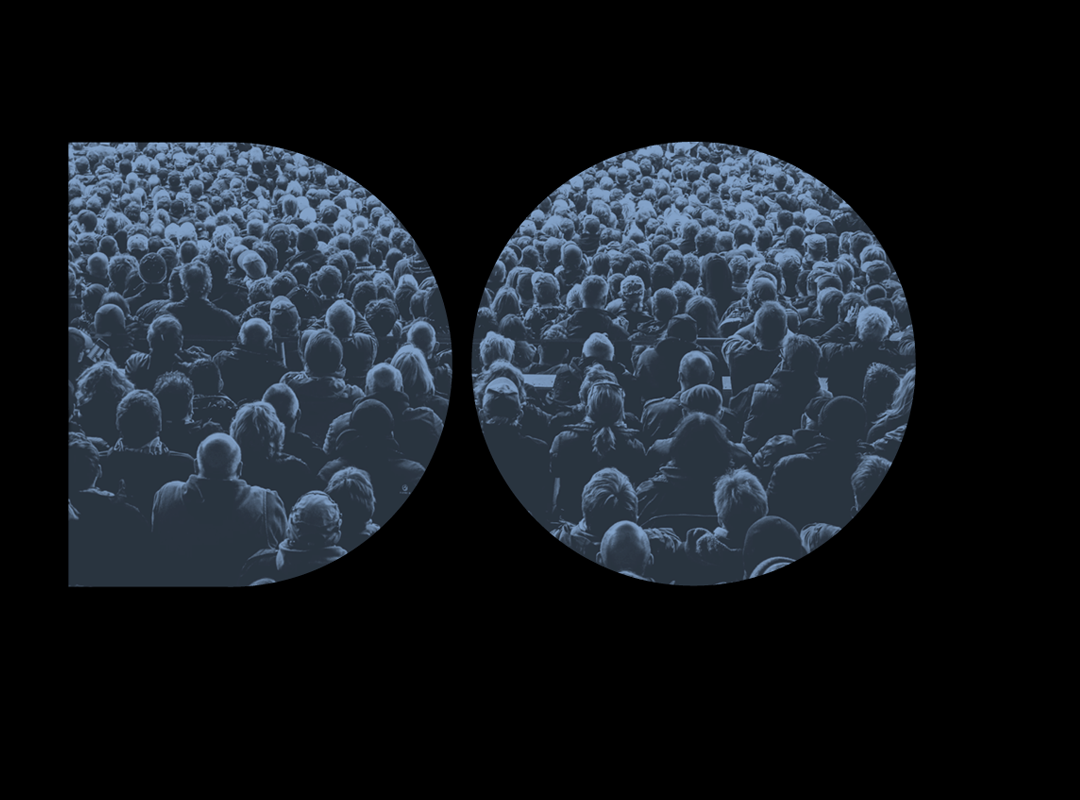
May 1, 2003
Life in Traffic [May 2003]
This free monthly newsletter starts conversations on issues to do with design for resilience — and thereby reveals opportunities for action. It also brings you news of Doors of Perception events and encounters. Back issues are now archived on Design Observer. To subscribe to future newletters by John Thackara click here.
LIFE IN A JAM
The car is a “room with a view”, and mobility, including the experience of traffic jams, could be a life-enriching mode of experience — if shaped by designers rather than traffic experts. Or so argues the first International Architecture Biennial in Rotterdam, curated by Francine Houben of the architecture firm Mecanoo. The biennial features road reports from Los Angeles, the Pearl River Delta, Jakarta, Mexico City, Tokyo, the Ruhr region, Beijing and Beirut. Until 7 June.
http://www.1abr.com/
SPACE FOR TIME
Doors’ contribution to the biennale is to participate in a seminar about the design consequences of new time-space relations. John Thackara will talk about “the law of locality”. Moderator Michiel Schwarz has also invited Ole Bouman (Archis), Thom Mayne (Morphosis, USA), and Mels Crouwel (Benthem Crouwel Architects of, inter alia, Schiphol Airport). Saturday 24 May 13:00 to 16:00h. at the Netherlands Architecture Institute in Rotterdam. You have to call to reserve a seat: 00 31 10 476 23 40
MORE TIME DESIGN
A collection of essays on product durability, Visions of Product Endurance, is available for free if you register for the Time in Design 24-hour conference, this coming October (which Doors of Perception is also supporting).
http://www.eternally-yours.nl
02@10
The tenth anniversary celebration of O2-Netherlands, called Generating A Sustainable Future, “will be the setting for the generation of creative ideas such as working fuel cells with other sustainable technologies and materials”. 02 are a terrific network of eco-designers, and their all-too-rare events are always stimulating and well-produced — so book the dates: 11-13 October. It’s at the Design Academy, Eindhoven, in the “Witte Dame” building.
http://www.o2nederland.org/generation
POST-SPECTACULAR TOURISM
“Tourism, human circulation considered as consumption, a by-product of the circulation of commodities, is fundamentally nothing more than the leisure of going to see what has become banal”. Guy Debord wrote that more than 40 years ago in The Society Of the Spectacle — and today’s mass tourism proves him depressingly right. Is there an alternative? The answer is: maybe. A workshop in Narva-Joesuu, in far eastern Estonia, considered “post-spectacular travel” as one if its scenarios for this fascinating if troubled place. Doors of Perception is helping to organise Spark!, a series of workshops at small towns in transition in five European countries: Forssa, Finland; Valdambra, Italy; Narva-Joessu, Estonia (where we were last week); Cray Valley, UK; Nox Island, Denmark. The website (which UIAH is hosting) is not in full-swing yet, but a few early results are at:
http://www2.uiah.fi/virtu/spark/workshop.html
DOT.CITY DESSAU
Since the beginning of the 1990s, the town of Dessau has to deal with the breakdown of its industrial history. Can the use of ICT counteract the loss of urban identity, the lack of multifunctional networks? How can urban information spheres and physical urban spaces penetrate each other? The Bauhaus Kolleg, a workshop for ideas, runs from May 22 to August 22, 2003. The entire process is published at:
http://www.bauhaus-dessau.de/dotcity.
MISSING COMPUTERS FOUND IN SANTORINI
What is ambient, pervasive, disappearing or ubiquitous computing actually for? Tales of The Disappearing Computer, a professional conference in Santorini, Greece, asks how information technology can be diffused into everyday objects and settings, and how this can lead to new ways of supporting and enhancing people’s lives. The event includes a special session, co-ordinated by Doors of Perception, to develop a vision for Convivio, the European network for social computing. 1-4 June, Santorini.
http://ilios.cti.gr/DCTales/
http://www.disappearing-computer.net/
DEEP SITE INSIGHTS
Roughly a decade after the large-scale introduction of the web, designers are still exploring the best ways to navigate cyberspace. Max Bruinsma’s thoughtful new book, Deep Sites, treats the web as a time-based medium in which print and TV environments are combined into new formats, and authoring and design become deeply collaborative efforts. The website-of-the-book includes useful urls and a bibliography.
http://www.xs4all.nl/~maxb/deepsites
BORG TAKE OVER YALE
What will the body be like in 50 years? How will changes to our bodies change our lived experience? This conference on The Adaptable Human Body: Transhumanism and Bioethics in the 21st Century explores the future of the body from the so-called transhumanist perspective. It is co-sponsored by (breathe deeply) the Yale Interdisciplinary Bioethics Program’s Working Group on Artificial Intelligence, Nanotechnology and Transhumanism. Transhumanism, in case you were wondering, “is a new approach to bioethics which argues that technology can be used to overcome the limitations of the human body, and that individuals should be allowed to enhance their bodies”. June 27-29, 2003 Yale University, New Haven, CT, USA.
http://www.transhumanism.org/tv/2003usa/
SPRINGTIME FOR DUBYA
Former metadesign principal Terry Irwin has published a powerful website/book, on the war on Iraq, entitled 20 Days In Spring. If your name includes the words Bush, George, and W, you may not enjoy it.
http://www.20daysinspring.net
SITTING DUX
Mitch Kapor, Bill Buxton, Andrew Zolli, Alistair Williamson, John Zapolski, and Terry Swack aim to inspire, explore and discuss future directions for the experience design community at DUX, the first joint conference on user experience design. Their aim is “to build an interdisciplinary community of professionals who design for a world in which experiences are increasingly digital and connected”. Before Dux, the 6th Advance for Design Summit takes place at the same venue. June 4-7(both events), The Palace Hotel, San Francisco, CA.
http://www.dux2003.org
http://www.aiga.org/sixthadvancefordesignsummit
YIKES: IT’S EXP
At the same time as Dux and Advance For Design in San Francisco, another event, called EXP, over in Philly, announces itself as “The Event That Defines The Experience Industry”. The mainly middle-aged white male speakers, who boast a remarkable collection of jowls and bad haircuts, will tell you “how to gain a greater share of your guest’s discretionary time and disposable income”; how to “destroy the myth that great experience need huge budgets” (sic); and how to “surf the generational shift”. The website does not mention a session on how to speak English, but supporters of the creative and cultural industries will be gratified that the four core themes in EXP are “Retail, Casinos, Corporate Visitor Centres, and Museums”.
http://www.exp-3.com/speakers.htm
SOCIAL COMPUTING IN AMSTERDAM
We can’t compete with the linguistic innovations of EXP, but back here in Amsterdam we look forward to a one-day national gathering and knowledge-sharing event for organizations busy with the innovation of social computing. In de buurt van ICT (In the neighbourhood with ICT) brings together projects to do with welfare, care, and learning. Accompanying debates have such titles as “Big Brother, Soft Sister” and “Cities Talk To Citizens”. 12 June, Passenger Terminal, Amsterdam.
http://www.indebuurtvanict.nl/
DIPPY IN PITTSBURGH
Sensual surfaces (engaging users through surface textures), somatic markers and somaesthetics (why we choose the prettiest product), and the seductive power of anthropomorphic design (products that look like people), are among the papers at Designing Pleasurable Products and Interfaces (DPPI), June 23 — 26, Carnegie Mellon University, Pittsburgh.
http://www.cmu.edu/cfa/design/dppi03/
GUI GOING
One of the world’s true eminences in interaction design, Gui Bonsiepe, is moving from the International School of Design in Cologne to return to Brazil, where he will establish a master’s study course at the Escola Superior de Desenho Industrial in Rio de Janeiro.
http://www.guibonsiepe.com
INTERACTION OPENINGS IN IVREA
If you love tech but fear EXP-ism, why not skip work for two years and study interaction design with an international crowd of like-minded pioneers in Italy? A few openings are still available for the Masters Programme at Interaction Design Institute Ivrea. According to Andy Davidson, the professor concerned, “we are especially looking for people from technology fields (computer science, engineering, etc.) and the social sciences (cognitive psychology, etc). In addition, we are looking for more applicants from Italy, from western Europe, and Scandinavia, and Asia”. The deadline for the next course, which starts in October this year, is 30 May.
http://www.interaction-ivrea.it/en/academicprogramme/admissions/
HOME AWAY FROM HOME
Two apartments in London and Berlin will be connected through the internet, creating the first remotely shared home. The prototype spaces will turn architecture and furnishings into tangible and sensual means of communication between friends and family. Sensory and kinetic devices, as well as an interactive light installation, are worked into a contemporary living space. This project is a collaboration between Tobi Schneidler (Interactive Institute in Sweden) and Carole Collet (Central Saint Martins College of Art and Design). The interactive exhibition is open daily, 3 — 18 May, in London and Berlin.
http://www.remotehome.org
SARS IN PERSPECTIVE
Sars is no laughing matter if you, or a loved one, catch it, but we know from friends in Hong Kong and Toronto — and from our own visits — that people in the “danger zones” do not feel nearly so afraid as do people thousands of miles away. This reality check on SARS first appeared in the peer-reviewed Lancet:
http://www.spiked-online.com/articles/00000006DD71.htm
ADMIRE THAT ARCH
Archphoto.it, a new website of photography and architecture, is more arty than webby, but it looks very nice. Subjects in the launch edition include Foreign Office Architects, Ben Van Berkel, and a piece on Open Build Research. The words are Italian.
http://www.archphoto.it
JOEPING THE LOOP
Large polyester mobile constructions in striking, bright colours are among the best-known products of mobility designer extraordinaire, Joep van Lieshout. Joep lectures on “Units, Sex, Villages, and Favelas” at the Berlage Institute, Rotterdam, 27 May.
http://www.berlage-institute.nl/3EVENTS/3index.html
http://www.avl-ville.com/
THE NEW DESIGN GEOGRAPHY
This newsletter caters for specialised design tastes, and Zurich is a fast-rising centre of design in-ness, so some among you will be keen to visit an exhibition about the “creative cross-sections or empty spaces between Sweden and Switzerland”. From Sweden with Love — On Swedish and Swiss Design is at The Museum fur Gestaltung, Zurich. 7 May to 9 June.
http://www.museum-gestaltung.ch
ZURICH ZEITGEIST
Collaboration technology is one of the themes at Bringing the Bits Together, the International Conference on Human-Computer Interaction in Zurich, 3 — 5 September.
http://www.interact2003.org/
RECOLLECT LATERAL TOMATOES
Should new media courses in higher education only train people for dotcom jobs? What is the right balance between academic learning & hands-on experience? This cybersalon in London celebrates the Hypermedia Research Centre’s birthday. Speakers include Richard Barbrook of HRC; Laura Jordan, Lateral; Tom Roope, Tomato; Jane Austin, Recollective. 13 May, The ICA, London SW1
http://www.hrc.wmin.ac.uk
NEVER-ENDING NEWS
Ever inimitable, Stewart Butterfield writes from Toronto that “the team has been working away on building The Big Game, labouring long days and nights at the Ludicorp headquarters in Yaletown in Vancouver, BC. As more and more features become real we get more an more excited! We can’t wait to let you all in. Come join us in discussions”. Go on, then.
http://www.gne.net/
SLUR ON EDGE: HOWKINS REPLIES
Last month we were so rude about a conference in London, about the creative industries, called Edge, that it behoves us to offer John Howkins, its organiser, the right of reply — so here he goes: “Hi, I feel your slur on Edge is so extreme that it requires an answer. No the name is not original, but few names are — including, of course, yours (touche: ed.). Two, your categorisation of what is and is not creative is your own, and bears no resemblance to anything Edge or its supporters have said. Three, I know little about semiotics, but generally steer well clear; as I steer well clear of the academic gobbledygook of many designers such as Media Lab Europe’s C-sense for common sense (and D-sense and E-sense) which you publicise uncritically. Fourth — guilty — I do whinge about intellectual property rights — they are out of control and we should do something about it. Regards, John”. We still think it would be gruesome to live in cities designed by and filled only with “creatives” — but you be the judge.
http://www.london-first.co.uk/edge
4D SPACE
4dspace is about interactive architecture. Speakers include architects Ron Arad, Christian Moller, Lars Spuybroek (NOX, Rotterdam), Marcelyn Gow, (Zurich, again), Marc Neelen (Stealth, Rotterdam/Belgrade); psychologist Paul Verschure; Jim Read (Arup Communications); Josephine Pletts and Usman Haque; Shona Kitchen of Kitchen Rogers, and designer Ben Hooker; architects/filmmakers Tapio Snellmann and Christian Grou; filmmaker Chris Allen of a/v collective The Light Surgeons; Ole Bouman, editor-in-chief of Archis; and Antonino Saggio (a lively professor). Architecture critic Lucy Bullivant , who organised it, co-chairs the event with David Turnbull of Atopia. 19 — 20 May, Institute For Contemporary Arts, The Mall, London. ICA Box Office e: [email protected]
ARCHITECTURE ADRIFT IN ORLEANS
How far is technology de-territorialising architecture, and shifting it into the field of the simultaneous? “An architecture of flow” is one of the topics at ArchiLab 2003, 11 — 12 June, Orleans, France.
http://www.ville-orleans.fr/html/archilab.html
BLOG BLOAT
Finally, the weblog got a conference. Weblogs enable people to run businesses, form new social ties, and evolve new forms of social computing — so what next? BlogTalk is in Vienna, 23 — 24 May.
http://blogtalk.net/cfp/cfpenglish.html
GO GLO
The prototype of Ford’s eco-friendly Glo Car, fully customisable in 17 million colours, is one of the highlights in the Coopers Hewitt Museum’s Triennial of US Design in New York. There are also portable buildings by Jennifer Siegal (for stylish LA nomads), $5 inflatable tents from Michael Rakowitz, and Frank Nuovo’s one-off luxury mobile phones in leather, diamonds, and other unlikely materials, for Vertu. Also included are flow-like ways of envisioning information, such as gene maps. Until January, 2004
http://ndm.si.edu/EXHIBITIONS/index.html
TONGUE-TIED IN CRETE
If you badly need to know what “psychophysics” is, or are, head for the tenth International Human-Computer Interface conference in Crete. Other mutilations of English scheduled for this cradle of civilization include a session on “Busintainment”. Sigh. 22 — 27 June.
http://hcii2003.ics.forth.gr/
SOCIETY OF THE SPECTACLES
At the ripe old age of 30, Siggraph, the monster market of computer graphics and interactivity, has added robotics, visualisation, medicine, haptics, and games to its remit. 27 — 31 July, San Diego, California.
http://www.siggraph.org/s2003/index.html
SMALL USERS, BIG MARKET
Interaction Design and Children, at the University of Lancaster, Preston, UK, 1 — 3 July, looks at design issues surrounding the increasingly complex interactive products now mastered with frightening ease by our children — and at the growing market they represent.
http://www.idc2003.org/
Observed
View all
Observed
By John Thackara
Related Posts

Equity Observer
Ellen McGirt|Essays
The Design Observer annual gift guide!

Equity Observer
Ellen McGirt|Essays
Gratitude? HARD PASS

Equity Observer
L’Oreal Thompson Payton|Essays
‘Misogynoir is a distraction’: Moya Bailey on why Kamala Harris (or any U.S. president) is not going to save us

Equity Observer
Ellen McGirt|Essays
I’m looking for a dad in finance
Recent Posts
The Design Observer annual gift guide! ‘The creativity just blooms’: “Sing Sing” production designer Ruta Kiskyte on making art with formerly incarcerated cast in a decommissioned prison ‘The American public needs us now more than ever’: Government designers steel for regime change Gratitude? HARD PASSRelated Posts

Equity Observer
Ellen McGirt|Essays
The Design Observer annual gift guide!

Equity Observer
Ellen McGirt|Essays
Gratitude? HARD PASS

Equity Observer
L’Oreal Thompson Payton|Essays
‘Misogynoir is a distraction’: Moya Bailey on why Kamala Harris (or any U.S. president) is not going to save us

Equity Observer
Ellen McGirt|Essays
